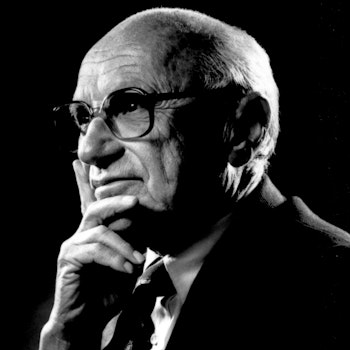A Monetary History of the United States, 1867-1960


Paperback
ebook
- Sale Price:
- $34.98/£29.00
- Price:
-
$69.95/£58.00 - ISBN:
- Published:
- Sep 2, 2008
- Copyright:
- 1963
50% off with code FIFTY
Milton Friedman and Anna Jacobson Schwartz’s A Monetary History of the United States, 1867–1960 is one of the most influential economics books of the twentieth century. A landmark achievement, it marshaled massive historical data and sharp analytics to argue that monetary policy—steady control of the money supply—matters profoundly in the management of the nation’s economy, especially in navigating serious economic fluctuations.
One of the book’s most important chapters, “The Great Contraction, 1929–33” addressed the central economic event of the twentieth century, the Great Depression. Friedman and Schwartz argued that the Federal Reserve could have stemmed the severity of the Depression, but failed to exercise its role of managing the monetary system and countering banking panics. The book served as a clarion call to the monetarist school of thought by emphasizing the importance of the money supply in the functioning of the economy—an idea that has come to shape the actions of central banks worldwide.

